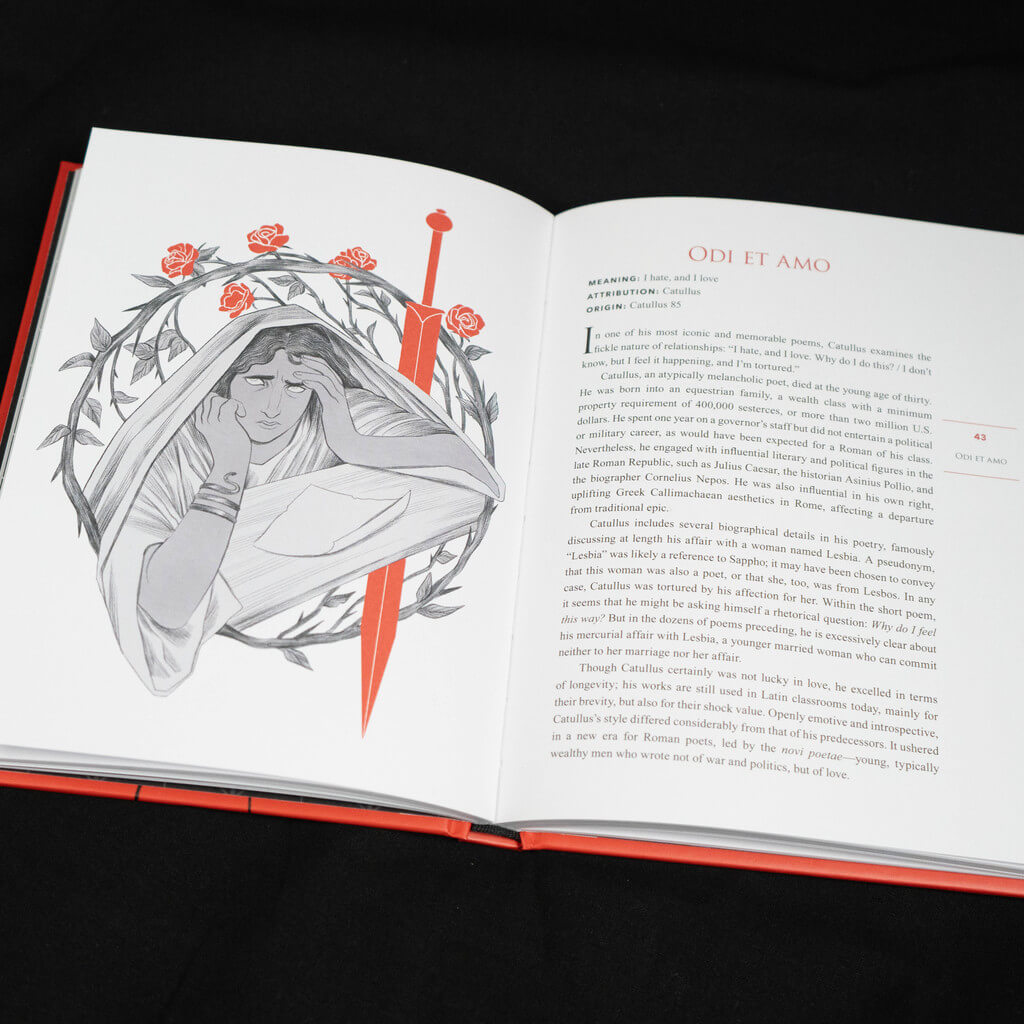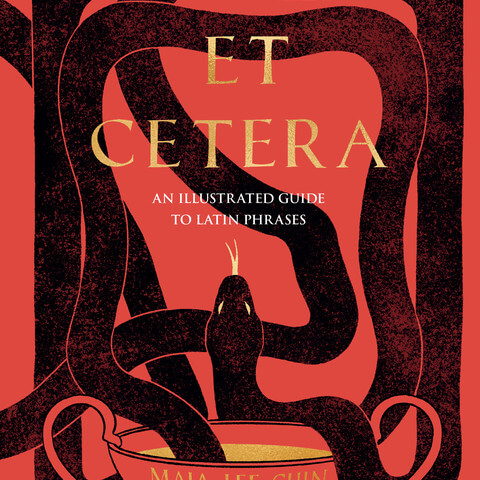Maia Lee-Chin ’21 and classics: It wasn't really a love-at-first-sight thing.
The USA Today bestselling author of the August 2024 book “Et Cetera: An Illustrated Guide to Latin Phrases” said she wasn’t enthralled by Roman mythology as a child. In high school, she considered dropping her Latin class more than once — especially while translating Caesar’s “Commentarii de Bello Gallico,” his eyewitness account of the Gallic Wars.
“I couldn’t understand [Caesar’s] long-winded explanations of wartime strategies, and I had no love for Roman history,” Lee-Chin writes in the book’s introduction.
Aeneas and Virgil, though. She got them. And, they, her.
In Aeneas, Lee-Chin found a kindred spirit. “Aeneas founded a new life in an unfamiliar place, a responsibility known to many children of immigrants,” she writes. “He cared for a war-weathered people, destined to establish a Roman future.”
Virgil’s poetry hit home for her with its themes of family responsibility, displacement, exodus and starting over.
“This feeling of on-fire recognition — of communion with a people long gone—wasn’t new to me, but it was the first time this history had seemed to return my gaze. I felt deeply for those lives, and they were gone,” Lee-Chin writes. “They were thousands of years removed from me, but a narrative thread connected us, pulling and tugging.”
Lee-Chin wasn’t expecting a book deal to result from her work as the 2020-2021 Fenwick Scholar, the highest academic honor the College bestows on a senior. Her yearlong project, “Classics in the Classroom: Retelling the 'Iliad' in Worcester,” saw her develop and teach a curriculum for Worcester Public School students, ages 6 to 8, centering on the "Iliad.”
In the spring of her senior year, Lee-Chin delivered the traditional Fenwick Scholar presentation via Zoom due to COVID-19. Afterward, she discovered her work had gone viral while she was presenting.
“Evidently, people from outside of Holy Cross were watching and tweeting about it. And there was so much outpouring of love and support, especially from the Holy Cross community and outside of it.

A person of Black and Chinese descent, Lee-Chin said she wanted to use her identity and her project to show young children of color that they, too, could be a classics scholar.
“But some people really didn’t like the premise of my project—that is, teaching Latin and ancient Greek to young students of color,” she said.
Those internet trolls, though, just may have contributed to the critical mass necessary to launch a first-time author.
What happened next is every unpublished writer’s dream. Months later, a literary agent who’d seen Lee-Chin’s presentation reached out. She wanted to sign her to a book deal. The agent had another client, illustrator Marta Bertello, who’d created a web series of illustrations of Latin phrases. Would Lee-Chin be interested in writing the accompanying text?
Why Et Cetera?
“And I was like, ‘Hell, yeah,’” Lee-Chin said. “I was just about to quit my job. It was really a case of being at the right place at the right time.”
The path to publication was not seamless. There were several substantive rewrites, and the title came late in the process. About a year after graduation, Lee-Chin and a friend were celebrating her presentation at Applebee’s, as presenting during the Covid lockdown hadn’t allowed them to celebrate in person. Lee-Chin said that in talking about the book she would cite Latin phrases still in circulation, such as carpe diem and memento mori, and end with et cetera as “shorthand for the less-remembered phrases that make up most of the book.”
Why not call the book “Et Cetera”? her friend asked.
Lee-Chin smiles. “The ‘rest’ was the book. So it became the title.”
“Et Cetera” is divided into five themes: literature; love, friendship and family; mythology; military and power, and culture and philosophy. The themes are broken into sections opening with epigraphs from a modern thinker engaged with classics, such as Ralph Ellison, Simone Weil, W. E. B. Du Bois and Hélène Cixous. For the most part, these scholars are African Americans and women, “two groups who historically have been barred from the study of the discipline,” Lee-Chin said.
Lee-Chin, fellow student Anne-Catherine Schaaf '22 and two faculty members founded the Classics Department Inclusion Committee in 2019 with twin goals of creating events and initiatives that promote diversity and inclusion and supporting students hailing from historically underrepresented or marginalized communities. Diversity and inclusion continue to be paramount for Lee-Chin, now a community engagement manager in an urban school district.
In May 2024 it was included in NPR’s list of 20 books critics can’t wait to read, and in September it made USA Today’s bestseller list.


